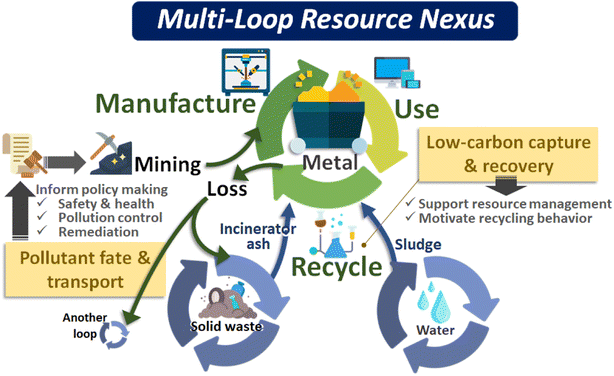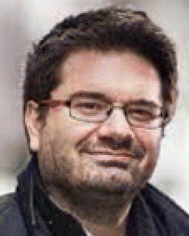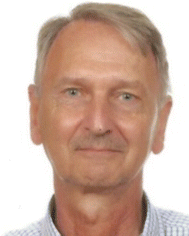 Open Access Article
Open Access ArticleCreative Commons Attribution 3.0 Unported Licence
The role of the chemical sciences in stewardship for sustainability
Stephen A.
Matlin
 *,
Federico
Rosei
*,
Federico
Rosei
 ,
Philippe
Lambin
,
Philippe
Lambin
 and
Lei
Jin
and
Lei
Jin

International Organization for Chemical Sciences in Development (IOCD). E-mail: s.matlin@imperial.ac.uk
The aims of the competition are to highlight the roles of the chemical sciences in promoting sustainability and to encourage young people to explore the relevance of scientific approaches to tackling sustainability challenges and provide them with an opportunity to present their perspectives. The theme of the 2023 IOCD Essay Competition was “How can the chemical sciences lead the stewardship of the Earth’s element resources?”.
The Essay Competition was open to entrants who were aged under 35 on 31 March 2023. The entries were assessed by a global team of volunteer evaluators, who selected 21 essays as Finalists based on their relevance and quality. From within this group, essays that were very highly rated were chosen as Regional Winners, with regions being defined according to the World Bank geographic classification.4
The six essays designated as 2023 Regional Winners show a wide range of approaches to the theme, as summarized below:
Iris Yu (East Asia and Pacific) (https://doi.org/10.1039/D3SU90037A) in Singapore writes about the growing demands for metals and minerals and the critical question of how to sustainably acquire, use and recycle the Earth’s available resources. She builds on the important aspect of resource circulation and presents a model involving a ‘multi-loop resource nexus’ (Fig. 1) to conserve and maximise the utility of available stocks and minimise the fraction lost to waste. This resource nexus provides many specific roles for the chemical sciences and highlights the potential synergies arising from the interactions among different circular economies.
 | ||
| Fig. 1 Multi-loop resource nexus and the roles of chemical sciences (from Yu, https://doi.org/10.1039/D3SU90037A). | ||
Eleanor Newton (Europe and Central Asia) (https://doi.org/10.1039/D3SU90042H) in the UK also begins with the recognition of the growing demand for material resources and the accelerating speed at which useful, sometimes critical stocks are being depleted. Concluding that the chemical sciences have a stewardship responsibility whose goal must be to manage these resources in a sustainable way, she advances three over-arching approaches. These involve encouraging innovation (especially extending the capacities of upcycling and recycling technologies), promoting education and awareness (as well as for chemists, improving scientific literacy in society and helping educate the public on pressing environmental issues and the importance of chemistry and sustainability in their day-to-day lives), and (“probably most importantly”) advocating for better government regulations.
Mariel Opazo (Latin America and the Caribbean) (https://doi.org/10.1039/D3SU90038J) in Chile writes on the energy aspect of climate change, focusing on the over-arching challenge of energy storage in the transition towards renewable energy technologies. Her introduction emphasises the danger of ignoring the interlinkages between different Sustainable Development Goals (SDGs) and highlights the importance of an integral approach through interdisciplinary research. The growing demand for large energy storage facilities and for batteries is driving higher demand for the extraction of Earth’s minerals, especially lithium and rare earth elements, with mining having a wide range of environmental impacts. She reviews battery and other storage options and considers broader implications arising from mining and its impact, as well as the need for societal engagement in behavioural change and making choices in areas such as transport options and recycling.
Thibaut Martinon (North America) (https://doi.org/10.1039/D3SU90040A) in the USA writes on phosphate scarcity and pollution, opening with the quote that “for phosphorus, there is neither substitute nor replacement”. He highlights the ways that profligate use of this unique resource as a fertilizer have led to its widespread dispersal, contaminating surface-level water bodies and creating a multifaceted threat. He stresses the stewardship duty to develop new strategies for mitigating the impending crisis by directing public policy, both at local levels and internationally – for example to remove phosphates from detergents and personal care products. The need for chemical innovation is also emphasised, for example involving alternatives to common synthetic fertilizers in the transition to a sustainable farming economy. The essay also addresses phosphate removal and recovery from surface-level water bodies and highlights the heavy uses of phosphate-based fertilizers in first-generation biofuels.
Selvakumar Selvarasu (South Asia) (https://doi.org/10.1039/D3SU90043F) in India opens with recognition that, as well as chemical sciences and other areas of science and technology (S&T), social and political solutions are needed to address complex environmental challenges such as climate change caused by human behaviour. Scaling up carbon capture to remove atmospheric CO2, employing both storage and utilization options requires further exploitation. Examples include materials based on metal–organic frameworks that can capture CO2 more effectively with lower energy requirement. The essay also covers waste and recycling, as well as alternative energy carriers and sources, including green H2 and biomass. It ends with discussion of the importance of policy and its implementation in society and the need for people to learn from childhood onwards about problems and solutions related to sustainability.
Petra van Der Merwe (Sub-Saharan Africa) (https://doi.org/10.1039/D3SU90039H) in South Africa uses a gaming analogy to frame her essay, noting how playing chess parallels the way scientists must approach impacts on the environment. An example traces the history of our understanding of greenhouse effects and global warming and uses this to introduce the next crisis, in which the efforts to tackle global warming by substitution of energy sources is in turn creating a shortage of critical raw materials. Details of the large and increasing demands for elements required for a single product – the smartphone – illustrate the argument for greater attention to conserving, recovering and cyclically reusing available materials. Her examples include new technologies such as the application of microfluidic processes in the mining sector and of flow processes in synthesis and in the recovery of valuable elements from waste. She concludes that “chemical scientists can only be true leaders in stewarding the sustainability of critical elements if they take ownership of the growing issue” and calls for more interdisciplinary collaboration.
While having different angles of entry and areas of focus, the perspectives of these six Regional Winners share many commonalities. All recognise ways in which the chemical sciences can contribute innovative technical solutions to help conserve and extend the useful lifetime of the Earth’s available element resources while addressing the present and looming environmental crises which have resulted, in part, from the past lack of attention to waste and to environmental damage caused by massively increasing transformation of planetary resources. They are staunch defenders of research and innovation that could lead to substitutes for scarce elements and polluting substances. All acknowledge that S&T is only part of the solution and that, as well as scientists learning to work together more effectively across disciplines, they must also become more active in engaging with society and policy-makers to ensure that the most sustainable and environment-friendly technologies are adopted.
Essays from the 15 additional Finalists in the 2023 competition are being published on IOCD’s website (http://www.iocd.org/v2_index.shtml) and provide further stimulating examples of the perspectives of young people on chemistry’s role in stewarding the Earth’s material resources. The 2024 IOCD Essay Competition will be launched by IOCD and RSC Sustainability in November 2023.
References
- Publications, International Organization for Chemical Sciences in Development, Namur, 2023, available at: http://www.iocd.org/WhatWeDo/publications.shtml.
- Global essay competition: Young Voices in the Chemical Sciences for Sustainability, RSC Sustainability, 2023, 1, 10, 10.1039/D2SU90002E.
- Our strategic approach to sustainability, Royal Society of Chemistry, London, 2023, available at: https://www.rsc.org/policy-evidence-campaigns/environmental-sustainability/our-strategic-approach-to-sustainability/ Search PubMed.
- World Bank Country and Lending Groups: Country Classification, World Bank, Washington DC, 2023, available at: https://datahelpdesk.worldbank.org/knowledgebase/articles/906519-world-bank-country-and-lending-groups Search PubMed.
| This journal is © The Royal Society of Chemistry 2023 |




